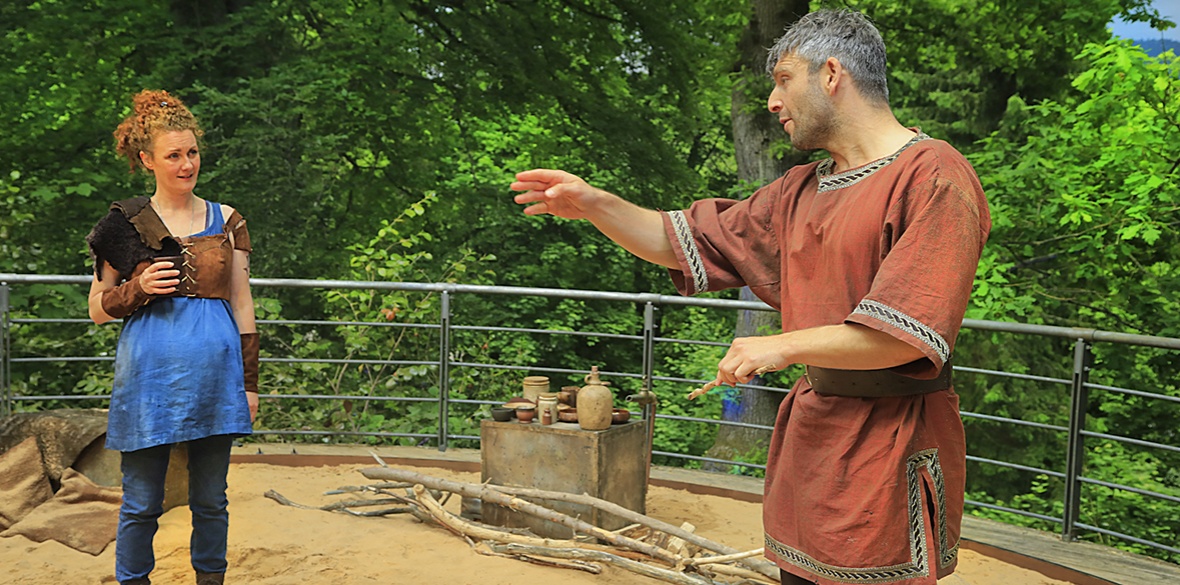This is the last article you can read this month
You can read more article this month
You can read more articles this month
Sorry your limit is up for this month
Reset on:
Please help support the Morning Star by subscribing here
Adventures with the Painted People
Pitlochry Festival Theatre
IN THE second century AD, at the furthest reach of empire, a tribe of indomitable Caledonians is considering negotiating with the Romans at a time when the Britons have been massacred into submission and Ireland colonised.
British theatre has generally pictured the encounter between Celts and Romans as purely violent, notably Howard Brenton’s play 1980 The Romans in Britain, unsuccessfully prosecuted for “gross indecency” for its depiction of anal rape of a local man by a centurion.
But in David Greig’s Adventures with the Painted People, the meeting between seeming polar opposites sets the scene for a beguiling romance.
The magic potion that makes his play plausible is the location of the theatre itself. Pitlochry’s beautiful open-air amphitheatre is situated on the banks of the Tay, upriver from the mile-square fortified city that the Romans abandoned.
In this very location, might a meek and bookish functionary of Latin culture have fallen in love with his illiterate captor and submitted to her? Is this the love story that you never find in Asterix?
Historical fiction is a Boy’s Own world of male friendships and derring-do and to revisit this territory Greig has invented a hitherto missing character — a complex, calculating and dominant woman. She is a Pictish Boudica with the guile to learn the imperial language.
This cross-gendering in the game of power opens up new possibilities. While the location is thrillingly real, the cultural certainties of the characters shift and vanish like hazy visions in an unexpected ceremony.
The witch Eithe, played with disarming candour by Kirsty Stuart, reveals that her power is based on fictions delivered to gullible men.
The soldier Lucius (Nicholas Karimi) confesses that Roman “invincibility” masks a cowardice that emasculates him in the eyes of his fellow legionaries.
Their bond comes from the shared knowledge that any power they have comes from make-believe and the ceremony of their courtship concludes with an initiation into Roman culture that is purely imaginary because the empire has retreated, never to return.
What they truly share is the experience of the disintegration of their respective cultures. The mutual discovery of two people as disillusioned individuals is, Greig suggests, the true foundation of romance and adult relationship.
In this, his first play for several years, he has pared down his dramatic instincts to essentials and this is reflected in the elegant minimalism of Elizabeth Newman’s staging.
The strange plausibility of Stockholm syndrome — the affection that the prisoner may feel for their jailer — and our own complicity in the notion of the nuclear couple is reinforced in a play akin to a Roman romcom.
But it raises the question: what are we doing with this genre, a fetish of bourgeois culture, to imagine the past?
Runs until July 4, box office: pitlochryfestivaltheatre.com.











